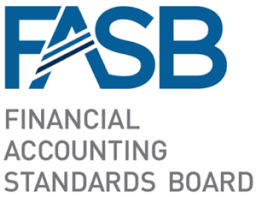Coronavirus
Roundtable Launches Covid-19 Call to Action, Intensifies Legislative and Regulatory Outreach; Debuts Video Blog on Pandemic Policy Efforts

The Real Estate Roundtable today debuted a Covid-19 Video Alert, detailing how the industry has switched into high gear, focused on legislative and regulatory policies aimed at repairing frozen liquidity conditions that threaten the entire American economic system. (Watch Covid-19 Call To Action)
- The Roundtable’s Chair, Debra Cafaro (Chairman of the Board and Chief Executive Officer of Ventas, Inc.) and President and CEO Jeffrey DeBoer present the organization’s wide-ranging, intensive efforts with policymakers and regulators in Washington, all aimed at stabilizing the far-reaching economic shockwave unleashed by the pandemic.
- The Roundtable’s Board of Directors has quickly responded to the crisis by charting a policy advocacy course in Washington – matched by immediate action by Roundtable policy advocacy committees, which have recently analyzed and worked on multiple policy recommendations in the tax and capital & credit areas.
- Today’s video blog features Cafaro and DeBoer launching the industry call to action. DeBoer states, “It is the view of The Real Estate Roundtable that our industry, each one of us, must become much more active and aggressive in pointing out the dangers that lurk ahead. We must communicate the connectivity of our industry to jobs, pension and 401K returns, communities and more.” He adds, “When economic hardships strike, our industry has historically worked tirelessly to help find a positive path forward. We must do that again.”
- DeBoer explains how the nationwide cessation of income brought on by the outbreak, which now presents new, significant obstacles to economic recovery once the coronavirus is brought under control.
- He also notes how the severe interruption of residential and commercial rental and mortgage payments – along with eviction moratoriums and a growing rent holiday advocacy movement – is contributing to dysfunction in the credit markets and freezing liquidity. DeBoer explains how this market freeze will eventually disturb the expected income of millions of people living on pensions and other retirement funds.
- “The financial system must facilitate positive action to allow issues to be worked out without penalty and without temporarily following strict enforcement guidelines that were written for normal times but that now threaten, in a pro-cyclical way, to make credit markets worse,” DeBoer states.
- The vlog continues with reports from three Roundtable policy specialists on:
The Coronavirus Aid, Relief and Economic Security (CARES) Act expansion of the Small Business Loan Program, which attempted to begin today, and the urgent need to change and clarify its qualification rules;
Regulatory forbearance efforts and new credit facilities recently established by the Federal Reserve, including the Term Asset-Backed Securities Loan Facility (TALF);
Tax measures passed in the CARES Act, including a new a five-year carryback period and temporay repeal of the 80% limitation for net operating losses (NOLs) from 2018, 2019 and 2020. Other tax priorities discussed included administrative relief for like-kind exchanges and a tax exemption for debt forgiveness.
Future video blog reports will feature Roundtable senior policy staff, Roundtable member guests and Members of Congress. We will continue to inform and engage policymakers and CRE stakeholders about how Washington is responding to the industry – and how The Roundtable and its industry trade association partners plan to meet the challenge ahead, together.
# # #
Pandemic Economic Relief
Phase 4 Congressional Package May Provide Additional Direct Relief; Roundtable Urges New Pandemic Recovery Fund and Clarifications to Small Business Loan Issues

Leading policymakers floated ideas on a “Phase 4” coronavirus relief package this week immediately after the CARES Act (Phase 3) was signed into law last Friday. (Roundtable Weekly, March 27)
- House Speaker Nancy Pelosi (D-CA) adjusted her messaging from earlier in the week that another massive legislative package should include economic recovery projects such as infrastructure improvements. Today, she emphasized Phase 4 should provide additional direct payments to individuals and expanded loans for businesses. (CNBC, April 3)
- “I think right now we need a fourth bipartisan bill—and I think the bill could be very much like the bill we just passed. So I’d like to go right back and say ‘let’s look at that bill. Let’s update it for some other things that we need,’ and again put money in the pockets of the American people,” Pelosi told CNBC’s Squawk on the Street today. She added, “While I’m very much in favor of doing what we need to do to meet the needs of clean water, more broadband and the rest of that,that may have to be for a bill beyond this.”
- On March 31 a broad-based business coalition, including The Real Estate Roundtable, urged President Trump and congressional leaders to establish a COVID-19 Business and Employee Continuity and Recovery Fund. (Coalition comment letter, March 31)
- The proposed Recovery Fund would provide additional liquidity for impaired industries and businesses to avoid an unprecedented systemic, economic crisis. The coalition states the establishment of the Fund is necessary to supplement lending expansion efforts included in the $2.2 trillion CARES Act. (Roundtable Weekly, March 27)
- The coalition letter states, “Without broad-based and expeditious federal action, long-term damage to the financial markets, rampant unemployment, and irreparable harm to communities are almost certain.”
- Additionally, Roundtable President and CEO Jeffrey DeBoer yesterday wrote to Treasury Secretary Steve Mnuchin and Small Business Administration (SBA) Adminstrator Jovita Carranza urging the release of important clarifications to small business loan issues included in last week’s CARES Act. (Payroll Protection Program letter, April 2)
- The Payroll Protection Program (PPP) included in the CARES Act provides an additional $367 billion to SBA to assist small businesses and contains a number of provisions aimed at granting temporary regulatory relief. (Top-line overview of the program and PPP Interim Final Rule)
- The April 2 letter recommends 13 principles and clarifications to PPP based on questions from Roundtable members who are trying to determine whether their businesses are eligible under the new loan program. The letter requests that Congress’s intent should be implemented by providing as much loan assistance as possible to as many small businesses as possible.
- Late yesterday, Treasury issued an update to its PPP Borrower Application Form. (Treasury Dept Assistance for Small Businesses webpage and The Roundtable’s Coronavirus webpage resources.)
- Today, the launch of the Payroll Protection Program was met with widespread reports about chaotic attempts to use the PPP portal – unprepared banks not accepting applications; confusion about the need to revise loan applications; and the SBA website crashing from heavy demand. (Politico, April 2 and Axios, April 3)
- However, GlobeSt reported today that anecdotal examples show retail tenants are taking a positive stance in negotiations with landlords. “Tenants and landlords are being proactive and cooperative with each other, although there have been exceptions with some tenants engaging in hardball with their landlords,” according to the April 3 article.
For the business community, a number of financial programs are available from the CARES ACT, depending on how many workers are employed by a given business concern. See Roundtable summaries of provisions that target:
As negotiations begin on a framework for a Phase 4 relief package between the House of Representatives and the Administration, the Senate is scheduled to return from recess on April 20. The Roundtable will remain engaged at all levels and offer timely policy alerts as the coronavirus crisis continues to unravel.
# # #
Capital and Credit
Roundtable Requests Industry Regulators to Suspend Mark-To-Market Accounting Rules and Suspend New CECL Accounting Standard to Prevent Exacerbating Economic Crisis

The Real Estate Roundtable this week submitted two requests to the Financial Accounting Standards Board (FASB) and securities regulators to prevent exacerbating the destructive economic repercussions of the coronavirus crisis. The first letter urges the immediate suspension of “mark-to-market” accounting rules (FAS 157). The second letter encourages the expansion a provision in the CARES Act that suspends the new Current Expected Credit Losses (CECL) for banks – by including non-banking financial institutions and insurance companies. (Mark-to-Market letter, March 31 and CECL letter, April 1)
- On March 31, The Roundtable addressed the mark-to-market – or “fair value” – rules in a comment letter to regulators. Measuring an asset at fair value records it at a price it would obtain in an orderly market instead of the asset’s original purchase cost. During unfavorable or volatile markets, the method does not accurately represent an asset's true value. (BGov, March 31)
- When the market-based measurement no longer accurately represents the underlying asset’s true value, a company should not be forced to calculate the selling price of these assets or liabilities during unfavorable or volatile times, such as today’s COVID-19 crisis.
- The Roundtable letter explains that the mark-to-market rules will further exacerbate the growing financial crisis. As many tenants will not be able to meet their debt obligations, liquidity in credit and capital markets has frozen, and the value of asset-backed securities collateral (including commercial mortgage-backed securities, or CMBS) is now set to decline.
- “In light of these events, it is important for the Financial Accounting Standards Board (FASB) to take action to immediately suspend mark-to-market accounting. It is simply not possible to properly value assets in illiquid and non-functioning markets,” the letter states.
- During the financial crisis of 2008-2009, the FASB voted on and approved new guidelines that allowed for asset valuation to be based on a price that would be received in an orderly market rather than a forced liquidation. The Roundtable letter encourages the FASB to take similar action now.
- On April 1, The Roundtable wrote to the FASB and the Securities and Exchange Commission (SEC) urging the regulators to expand the suspension of the new Current Expected Credit Losses (CECL) accounting standard during the current COVID-19 crisis beyond banks – to include all companies, including non-bank financial companies and insurance companies. (Roundtable CECL letter, April 1)
- The CARES Act allows federally insured financial institutions to delay the implementation of the CECL standard. Additionally, federal banking regulators recently issued an interim final rule allowing lenders to delay the estimated impact on regulatory capital.
- The new CECL standard changes the way banks calculate reserves on assets, requiring banks and nonbanking finance companies to estimate the expected loss over the life of a loan. For real estate, there is concern that this new standard will exacerbate the current liquidity crisis.
- While CECL is expected to have the greatest impact on banks (which typically have extensive financial instrument portfolios), even non-banking entities are very likely to hold financial instruments within the scope of CECL.
- U.S. commercial and multifamily real estate encompasses approximately $16 trillion in income-producing assets, supported by over $4 trillion in debt – mostly provided by commercial banks, life companies and commercial mortgage backed securities (CMBS).
- Therefore, it is important to apply this CECL suspension to non-bank finance companies, including life companies who also play a significant role in providing essential liquidity to the commercial real estate industry. The Roundtable letter encourages the FASB to suspend application of the new CECL standard for all companies.
The Roundtable’s Real Estate Capital and Credit Policy Advisory Committee (RECPAC) will continue to provide expertise and insight into policy steps that will help support the restoration of necessary market liquidity resulting from the COVID19 crisis.
# # #


